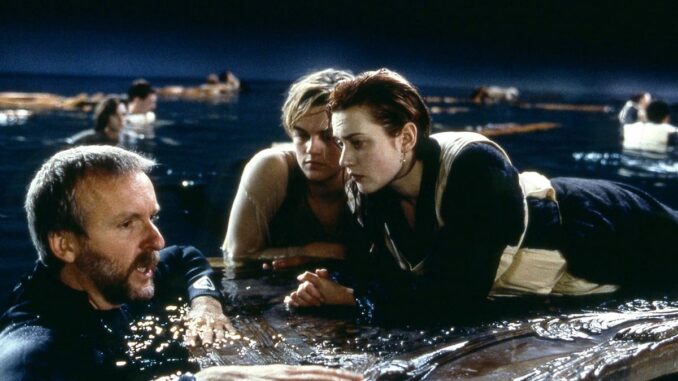
The Icy Grip of "What If": Settling the Debate on Jack's Titanic Fate
The icy waters of the North Atlantic have claimed more than just lives; they’ve claimed an enduring piece of our collective imagination. The sinking of the Titanic, a tragedy etched in history, was further immortalized by James Cameron's epic film, turning the real-life disaster into a timeless love story. And with that love story came a question that has plagued moviegoers for decades: could Jack Dawson, the charming artist with a heart of gold, have survived the night? The debate surrounding Jack's fate on that floating door has raged on, fueled by scientific scrutiny, impassioned arguments, and a desperate desire to rewrite a heartbreaking ending. While the film's artistic license is undeniable, a closer look at the physics, the circumstances, and the narrative purpose suggests that, despite all the theories, Jack's fate was sealed not just by the frigid waters, but by the film's own emotional currents.
On the surface, the "door theory" seems plausible. Why couldn't Rose share a perfectly buoyant piece of debris with Jack? Numerous experiments, conducted by both armchair enthusiasts and scientific professionals, have explored the potential. Some suggest that the door, properly configured and with a life vest secured underneath, could have supported both individuals. Others argue that even with the door’s buoyancy, prolonged exposure to near-freezing water would inevitably lead to hypothermia and eventual death. This is where the harsh reality of the environment enters the equation. The air temperature was hovering around freezing, and the water temperature was even lower, barely above the point of ice formation. Hypothermia, a rapid and brutal killer, would have begun its insidious work almost immediately. While Rose, partially submerged and clinging to a relatively stable platform, might have held on a few precious minutes longer, Jack, fully immersed and potentially weakened by exertion, would have faced a significantly shortened timeframe for survival.
Beyond the purely scientific considerations, the context of the scene itself is crucial. The survivors were adrift in a chaotic sea, surrounded by the debris of a sunken behemoth and the cries of the dying. Panic reigned supreme. The sheer physical effort required to hoist Jack, exhausted and hypothermic, onto the door without jeopardizing Rose's precarious hold would have been immense. The door itself was likely unstable, prone to shifting and rolling in the waves. Maintaining balance and preventing further immersion would have been a constant struggle. In this context, the simple act of sharing a door becomes a Herculean task, demanding strength, coordination, and above all, the cognitive ability to make sound decisions under extreme duress – qualities that would have been rapidly diminishing under the grip of hypothermia.
However, perhaps the most compelling argument for Jack's demise lies not in physics or practicality, but in the narrative heart of the film. "Titanic" is not just a disaster movie; it's a love story, a tale of sacrifice and the enduring power of memory. Jack's death, while undeniably tragic, is integral to the film's emotional impact. He represents the ultimate romantic ideal, the selflessness of true love. He willingly sacrifices himself to ensure Rose's survival, allowing her to live a full and rich life, carrying his memory with her. Had Jack survived, the film's thematic resonance would have been diminished, its emotional core weakened. His death, while devastating, gives meaning to Rose's survival, transforming her into a vessel for his dreams and aspirations.
Ultimately, the debate surrounding Jack's fate on the Titanic hinges on a question of realism versus romanticism. While scientific analysis might suggest a slim possibility of survival under ideal conditions, the harsh realities of the situation, coupled with the film's inherent narrative purpose, point towards a more conclusive answer. Jack's death, as heartbreaking as it is, serves as a powerful testament to the transformative power of love and sacrifice. It underscores the film's message that even in the face of unimaginable tragedy, hope and the human spirit can endure. So, while the icy grip of "what if" may continue to linger, perhaps it's time to acknowledge that Jack's fate, though tragic, was ultimately necessary, solidifying his place as a timeless symbol of love amidst the wreckage. The door, therefore, becomes less a question of engineering and more a metaphor for the enduring power of memory and the sacrifice that allows love to survive, even in the coldest of waters.